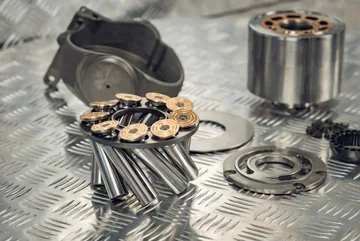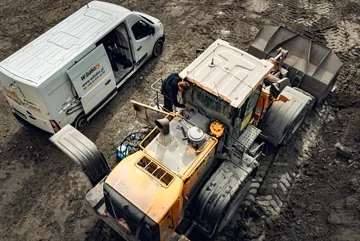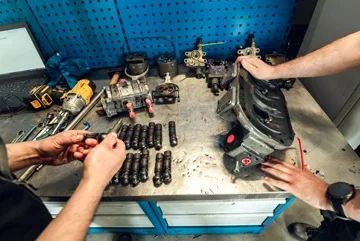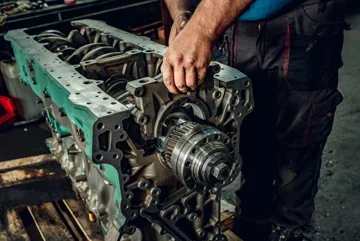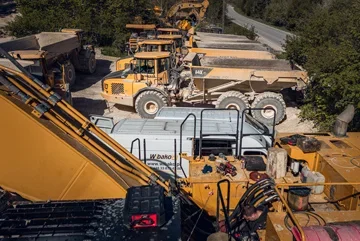The internal combustion engine, especially the diesel engine, is the heart of almost every construction machine and the choice of the right engine block is crucial for its efficiency, durability and the possibility of regeneration. In today's post, we will look at three main types of engine blocks used in internal combustion engines: monoblocks, dry liner blocks and wet liner blocks. Each of these constructions has its advantages and disadvantages, which affect their use in different conditions.
Monoblock - maximum durability
A monoblock is a uniform construction in which the cylinders are an integral part of the engine block. Usually made of spheroidal cast iron, they provide exceptional rigidity and resistance to deformation. This type of block is particularly popular in diesel engines, where durability and reliability are key.

Advantages of monoblocks:
- High durability and resistance to high loads, typical for diesel engines.
- No separate elements that could cause leaks.
- Compact construction, ideal for machines with limited space.
Disadvantages of monoblocks:
- Costly regeneration requiring precise lining.
- Limited possibility of replacing individual elements.
Monoblocks are often used in diesel engines of brands such as Cummins, Caterpillar and Deutz, especially in compact, medium and smaller size construction machines.
Dry liner block - a compromise between monoblock and wet liners
A dry liner block combines the durability of a monoblock with the ability to replace worn liners. The liners are pressed into the block, which makes their replacement possible without the need to replace the entire engine. This solution is often found in diesel engines, where both durability and ease of servicing are important.

Advantages of dry liner block:
- Possibility of replacing liners without the need to replace the entire block.
- Greater durability than in the case of wet liners.
Disadvantages of dry liner block:
- Less efficient cooling compared to blocks with wet liners.
- Limited thermal resistance in difficult working conditions.
Dry liner blocks are often found in Perkins diesel engines, used in backhoe loaders and agricultural machines.
Wet liner block - best cooling and easy regeneration
Wet liner blocks are designed for the most demanding applications. The liners are surrounded by coolant, which significantly improves the thermal efficiency of the engine and facilitates the replacement of worn elements. This solution is particularly popular in heavy machines, where cooling and ease of servicing are key.

Advantages of wet liner block:
- The best cooling efficiency thanks to the direct contact of the liner with the coolant.
- Possibility of replacing liners without disassembling the entire engine.
Disadvantages of wet liner block:
- Risk of leaks with improper assembly.
- Susceptibility to corrosion, especially when using ordinary water instead of the appropriate coolant.
This type of construction is used in the heaviest construction machines, such as bulldozers, excavators or mining machines, where internal combustion engines work under enormous load.
Which internal combustion engine block to choose?
Each of the described types of engine blocks has its advantages and disadvantages, as well as its specific application:
Monoblock - ideal for compact and medium machines working under high load.
Dry liner block - a compromise between durability and the possibility of regeneration, used in agricultural and construction machines.
Wet liner block - the best for the heaviest applications, where key is the cooling efficiency and easy liner replacement.
The choice of the right internal combustion engine block, especially diesel, depends on the purpose of the machine and the preferences of the manufacturer.
Each of these solutions has its place in the construction and industrial industry, and knowing them allows to better adapt the machine to specific working conditions.
If you want to see the differences between internal combustion engine blocks with your own eyes, be sure to watch the video: "Differences in ENGINE BLOCKS, which are WORTH knowing"!



